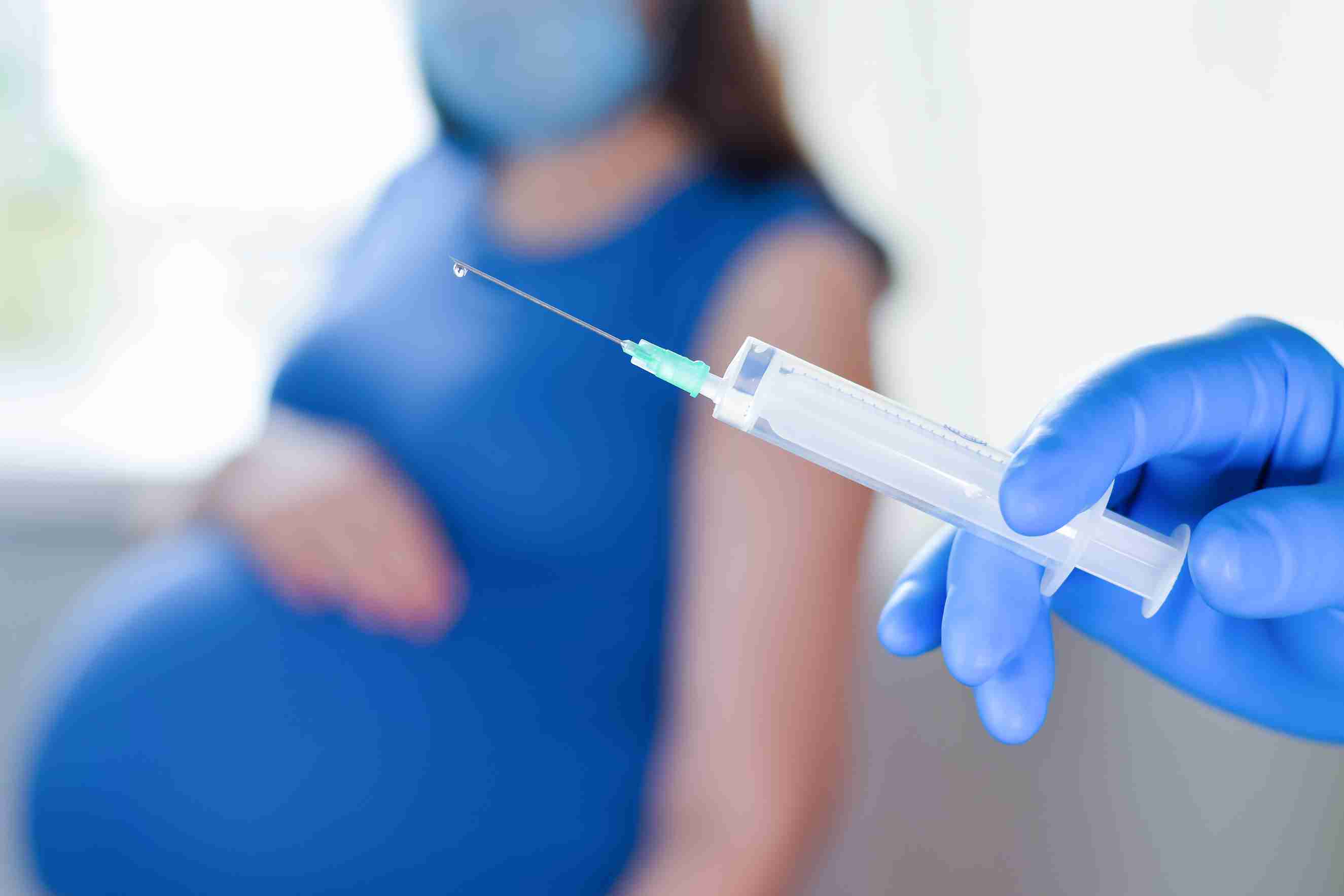
If you are pregnant and are wondering about vaccines like Tdap, TT or Td in pregnancy, then thisarticle is for you! It explains why certain vaccines are recommended duringpregnancy, how they keep both mother and baby safe and what makes the Tdvaccine especially important.

During pregnancy, an expectant mother's body will undergo several changes in order to accommodate the growing baby. These usually take a toll on her overall health, and her immune system may end up being too weak to fight off any infections. As a result, she and her baby will be at risk of contracting illnesses that could severely impact their health and even prove to be fatal.
An additional layer of protection is in place once the mother has been vaccinated. Apart from her health being safeguarded, timely doses of life-saving vaccines ensure that the protection extends to the child growing within her womb. This early intervention is vital, as newborns are typically too young and undeveloped to receive all the vaccines immediately after they are born.
This is why it is vital to administer vaccines during pregnancy. The Td vaccine during pregnancy boosts the production of antibodies that can fight against harmful illnesses, thus ensuring that a pregnant woman remains healthy throughout her pregnancy while simultaneously enabling her baby to receive a healthy start after it is born.
The tetanus-diphtheria (Td) vaccine protects the body against two diseases: tetanus and diphtheria. Usually, the vaccine is administered in childhood, and then booster shots are usually taken at 10-year intervals.
Pregnant women are advised to take the Td vaccine as part of their prenatal care to protect themselves and their unborn baby from maternal and neonatal tetanus and diphtheria. This vaccine should be administered to them, even if they have already taken it before. This ensures that protection against these two diseases is maintained throughout the pregnancy, and it is especially useful in cases where pregnant women may not have had the complete set of the recommended booster shots.
The Td vaccine has been in use for several decades and has been adopted in several countries across the globe. It has undergone extensive research. Consequently, it has been found to be completely safe for use during pregnancy.
Most people get a bit confused when choosing between the TT (Tetanus Toxoid), Td, and Tdap vaccines. The main difference between these three vaccines is that while the TT vaccine protects against just tetanus, the Td vaccine protects against both tetanus and diphtheria. The Tdap vaccine provides protection against an additional illness: pertussis (whooping cough). For newborns, pertussis can be extremely deadly, particularly in the first few months of life when they are too young to receive a vaccination. The choice between these vaccines is usually made after thorough consultation with healthcare providers and review of medical history.

The bacterium Clostridium tetani is the cause of tetanus. As its toxins disrupt the nervous system, it can cause severe health issues and even be fatal. A tetanus infection during pregnancy could lead to seizures, muscle spasms, respiratory issues, etc., and could severely impact the health of the mother and child. Since it has a high mortality rate, it is vital to ensure vaccinations are taken on time to prevent the onset of the disease.
The Corynebacterium diphtheriae bacterium is the cause of the highly contagious and sometimes fatal disease diphtheria. People with diphtheria experience:
● Ailments associated with their nose, throat, tonsils and larynx,
● Skin rashes and blisters,
● Heart, kidney or nerve problems.
Diphtheria can cause long-term complications like paralysis, chronic lung infections, heart and nerve injury, etc.
During pregnancy, it is vital to be vaccinated with the Td vaccine so as to prevent the occurrence of this dreaded disease. Since the diphtheria vaccine is usually administered to kids at the age of 2 months, the protection a baby receives from the mother during pregnancy is crucial in those first vulnerable weeks of life.
Pregnant women are recommended to take the Td vaccine between 27 and 36 weeks of pregnancy.
In a few cases, the pregnant woman may not have been able to get the initial dose during her childhood, or the vaccination schedule may have been disrupted for some reason. If so, the following schedule must be adhered to while getting the 1st TT in pregnancy:
1st Td dose: Get vaccinated during the early days of pregnancy.
2nd Td dose: The 2nd dose of TT during pregnancy is taken around a month after the first dose.
3rd Td dose: This dose of the vaccine should be taken at least 6 months after the 2nd dose.
4th Td dose: 1 to 5 years after the 3rd time, regardless of being pregnant at the time.
5th Td dose: A booster shot at least 1 to 10 years after the 4th dose, regardless of being pregnant at the time.
Before giving birth, pregnant women should receive at least two doses: the first as soon as feasible during pregnancy and the second at least four weeks following the first and at least two weeks before the due date. Continue the vaccine as previously mentioned after birth until all five doses have been given.

The Td vaccine is safe for pregnant women. A few mild Td vaccine side effects may be noticed. These include:
● Fatigue
● Muscle pain or aches
● Redness, swelling or mild pain at the site of the injection
● Headaches
● Fever or chills
After the injection, if the pregnant woman develops anaphylactic shock and symptoms such as pale skin, chilly hands and feet, diarrhoea, fast heartbeat, palpitations or difficulty breathing, she has to get medical help promptly.
Tetanus and diphtheria are among the most dreaded diseases in the world. However, with timely care, such diseases can be easily prevented from occurring. To ensure expectant moms are completely safeguarded from the complications such diseases bring, it is best to administer the Td vaccine to not just them but also their caregivers. Family members and caregivers who stay close to the baby are encouraged to keep up their current vaccinations. This reduces the likelihood that the infant may get these diseases. By following these simple measures, you can ensure a safer delivery, a healthy pregnancy and a safer start for the unborn child.


When the Td vaccine is taken during pregnancy, it triggers the production of antibodies that can protect both the mother and her unborn child from tetanus and diphtheria. This protection will last till the child is born and ready to take the vaccine themselves.

The vaccine needs to be taken within 27 and 36 weeks of pregnancy. Your healthcare provider will specify the immunisation schedule during the prenatal visits.

The Td vaccine is quite safe and can be administered to pregnant women. A few mild side effects, like fatigue, muscle aches or skin irritation or soreness at the injection site, can be expected.
